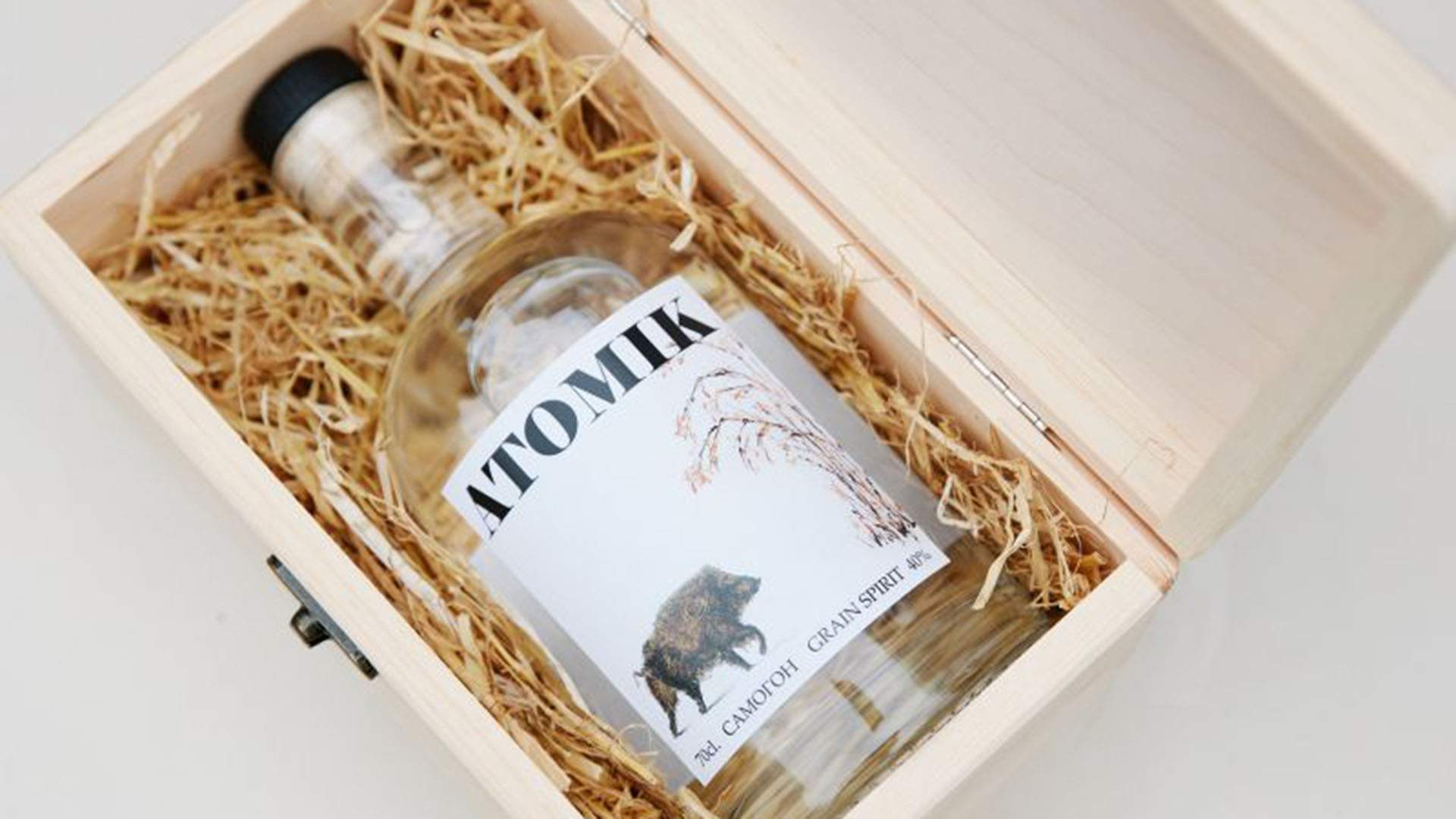This New Vodka Is Made From Grain From the Chernobyl Exclusion Zone
The artisanal tipple is radioactive-free — and you might soon be able to buy it.
You've binged your way through HBO's excellent Chernobyl mini-series. If you're a Melburnian, or you've taken a trip to the Victorian city recently, you may have wandered through a recreation of the exclusion zone around the exploded nuclear reactor as well. Soon, you also might be able to sip shots of vodka from the region — made from grain from the Ukrainian area that has been off limits for more than three decades.
The tipple in question is called Atomik Vodka. Brewed by a team of scientists from the UK and Ukraine, it's part of a three-year research project investigating the transfer of radioactivity from the soil to crops grown in the closed-off spot, as well as in the Narodychi District within the Zone of Obligatory Resettlement. (People still live in the latter location, but the land isn't officially allowed to be used for agriculture.) While the grain itself showed some signs, all traces of Chernobyl-derived radioactivity was lost in the distilling process, which inherently reduces impurities — leaving the vodka with the same level of natural radiation that you'd find in any other spirit.
The vodka also uses local mineral water, sourced from a deep aquifer below the town of Chernobyl, around 10 kilometres south of the nuclear power station. It's been found to possess chemistry similar to water from limestone aquifers, like the one in the Champagne region of France, and was used to dilute the distilled alcohol to 40 percent.
At present, only one bottle of the vodka exists. And, if you're curious about giving it a taste, it's not for sale. But the team behind Atomik hope that will change, and, that after clearing a few legal hurdles, they'll be able to begin a small-scale experimental run of the grain spirit by the end of this year.
If they're successful in their efforts, they plan to donate 75 percent of Atomik Vodka's profits back to the affected Ukrainian community.
It's also hoped that the research project will assist residents around the exclusion zone by showing that the land is now safe to be used for agriculture, opening up further investment and economic benefits.
Via the University of Portsmouth.





